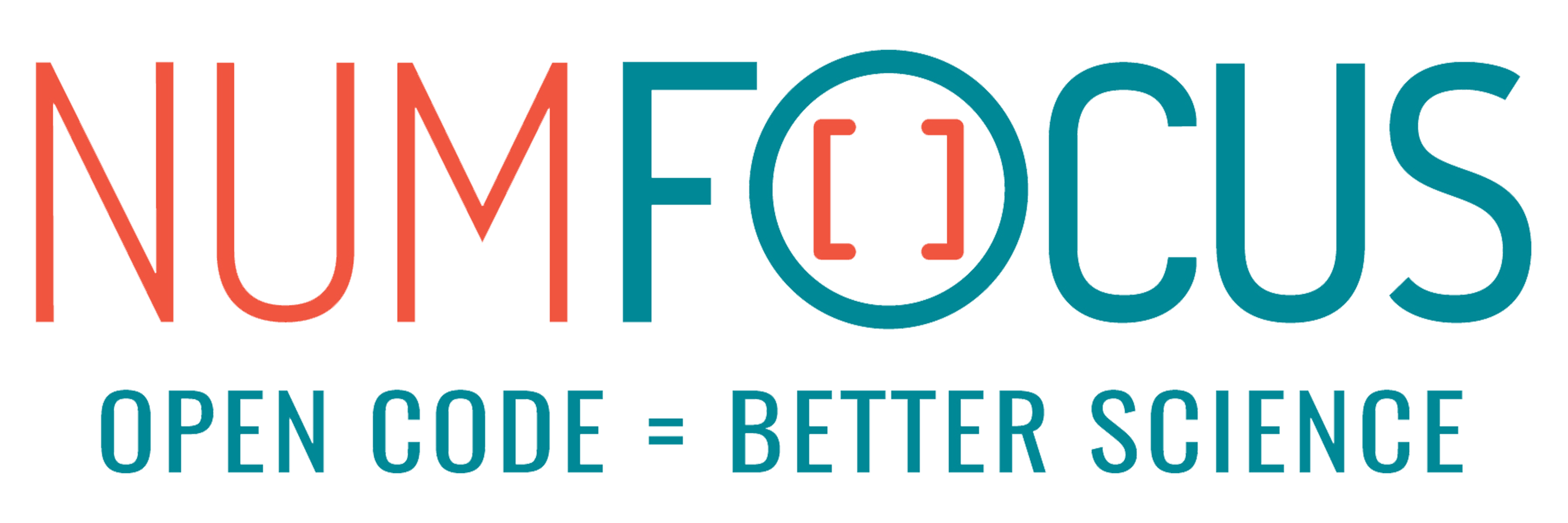WorldWide Telescope is a fiscally sponsored project of NumFOCUS, a nonprofit dedicated to supporting the open-source scientific computing community. If you like WWT and want to support our mission, consider making a tax-deductible donation to support our efforts.
NumFOCUS is a 501(c)(3) non-profit charity in the United States; as such, donations to NumFOCUS are tax-deductible as allowed by law. As with any donation, you should consult with your personal tax adviser or the IRS about your particular tax situation.
The American Astronomical Society (AAS) is a founding sponsor of the WorldWide Telescope project and assisted with its transition from a commercial to an Open Source effort. Significant financial, administrative, and programmatic support enabled the fully open realization of this amazing resource, which continues to be utilized throughout the astronomical community for a variety of educational and research-related efforts.
Work on WWT has been supported by the American Astronomical Society (AAS), the US National Science Foundation (grants 1550701, 1642446, and 2004840), the Gordon and Betty Moore Foundation, and Microsoft. The WWT team thanks Datadog for providing monitoring services as part of its Open Source program.
Academic Citations
If you use WWT in scholarly work, the canonical project reference to cite is Rosenfield et al. 2018. The canonical reference for the TOAST projection underlying WWT’s all-sky spherical visualizations is McGlynn et al. 2019. You are also encouraged to cite and/or acknowledge the data sets underlying any WWT-based visualizations involved in your work.
Data Credits
Credits for the scientific data sets that appear in WWT are stored in the metadata describing each dataset and surfaced in the client software. The major data sets featured in the core WWT experience are available thanks to the generosity of the following individuals and organizations:
- DSS: Frank Summers, Brian McLean, Space Telescope Science Institute
- 2MASS and IRAS: Infrared Science Archive (IRSA) at Caltech
- WMAP: WMAP team
- USGS Digital Elevation Model (DEM): U. S. Geological Survey
- WHAM: University of Wisonsin
- VTSS: Virginia Tech
- SHASSA: Swarthmore College
- Hevelius constellation artwork: Mark Crossley, Wilmslow Astronomy
- Milky Way Galaxy artwork: Dr. Robert Hurt, Spitzer Science Center, CalTech
- Hipparcos catalog: European Space Agency
- Planetary surface maps: NASA Jet Propulsion Laboratory
- SDSS processing: Miguel Angel Aragon Calvo, Johns Hopkins University; Mark SubbaRao, Adler Planetarium and University of Chicago
In additional to the individuals and organizations named above, the WWT project gratefully acknowledges further support and data access provided by these organizations:
- ASCOM Initiative
- Bing Maps
- California Academy of Sciences
- Center for Astrophysics | Harvard & Smithsonian
- Chinese Virtual Observatory (China-VO)
- Copenhagen University Observatory
- European Space Agency Hubble program
- Infrared Processing and Analysis Center (IPAC)
- International Virtual Observatory Alliance (IVOA)
- National Aeronatics and Space Administration (NASA)
- NSF's National Optical-Infrared Astronomy Research Laboratory (NOIRLab, formerly NOAO)
- Princeton University Department of Astrophysical Sciences
- U. S. Naval Observatory (USNO)
- Virtual Astronomy Multimedia Project (VAMP)
And these individuals:
- Alyssa Goodman (Harvard University)
- Tom McGlynn (NASA SkyView)
- August (Gus) Muench (AAS)
- Alex Szalay (Johns Hopkins)
- Patricia Udomprasert (Harvard University)
- David Weigel (U. S. Space & Rocket Center)
- Curtis Wong (Microsoft Research)
Advisory Board
The open-sourcing of the WWT project and transition in management from Microsoft Research to the AAS was overseen by the WWT Advisory Board. The project gratefully acknowledges the dedicated efforts of:
- Sarah Block
- Andy Connelly
- Chen-Zhou Cui (International Partnerships Lead)
- Cristine Donnelly
- Jonathan Fay (Software Development Lead)
- Karl Fogel
- Alyssa Goodman
- Ron Gilchrist
- Morgan Griffith
- Bryan Heidorn
- Robert Hurt
- Erin Johnson
- Susanna Kohler
- Knut Olsen
- Fred Rasio
- Doug Roberts (Planetariums and Museums Lead)
- Phil Rosenfield (Astronomical Research Lead)
- Gretchen Stahlman
- Julie Steffen
- Mark SubbaRao
- Matt Turk
- Pat Udomprasert (Education Lead)
- Jaap Vreeling
- David Weigel
- Curtis Wong
- Martin Woodward
- Ryan Wyatt
Dedication
The WorldWide Telescope project is dedicated to the vision and efforts of Jim Gray, who inspired us to bring the stars within the reach of everyone. Jim’s research website is preserved here.
